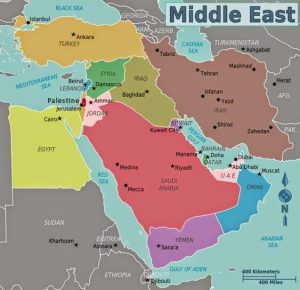About Us
Introduction About AMAGE
The African Middle East Association of Gastroenterology (AMAGE) represents a wide geographical area in the World Gastroenterology Organisation (WGO) which include Africa and the Middle East.


Africa is the world’s second largest and second-most populous continent after Asia. At about 30.3 million km2 including adjacent islands, it covers 20% of Earth’s land area and 6% of its total surface area. With 1.4 billion people as of 2021, it accounts for about 18% of the world’s human population. Africa’s population is the youngest amongst all the continents; the median age in 2012 was 19.7, when the worldwide median age was 30.4. Despite a wide range of natural resources Africa is the least wealthy continent per. Scholars have attributed this to different factors including geography, climate, lack of democracy, corruption, and other factors. Many African countries are classified as low/middle income countries with limited health care budgets. This is reflected on the prevalence rates of communicable and non-communicable diseases with a high impact on gastrointestinal diseases.
On the other hand, The Middle East is a geopolitical region encompassing the Arabian Peninsula, Turkey, Egypt, Iran, and Iraq. Most Middle Eastern countries (13 out of 18) are part of the Arab World. The most populous countries in the region are Egypt, Turkey, and Iran, while Saudi Arabia is the largest Middle Eastern country by area. the Middle East is both a heavy contributor to climate change and a region expected to be severely impacted by it.

AMAGE is the association that include the national Gastroenterology societies in Africa and the Middle East and represents all these societies in the World Gastroenterology Organisation (WGO).
AMAGE Vision
To be the leading regional platform advancing excellence in gastroenterology and hepatology across Africa and the Middle East, fostering equitable access to care, innovation, education, and collaboration in alignment with global standards.
AMAGE Mission
- The African and Middle East Association of Gastroenterology (AMEAG) is committed to enhancing digestive health in the region through:
- Promoting the highest standards in clinical practice, research, and education in gastroenterology and hepatology;
- Supporting the professional development of healthcare providers through accessible, culturally relevant training and resources;
- Fostering collaboration among regional and global stakeholders to address shared challenges in digestive health;
- Advocating for policies and programs that improve the prevention, diagnosis, and management of gastrointestinal and liver diseases across diverse healthcare systems.

Education and training by holding joint scientific meetings with national Gastroenterology societies and sub-regional associations and executing hands on training workshops on endoscopy and ultrasonography uses for early detection of Gastrointestinal and liver diseases.


Promotion of the scientific research in the field of Hepato-gastroenterology diseases on national and regional basis by encouraging networking and consortia establishment in regional multinational research.


Encouraging the development of guidelines for the management of Hepato-gastroenterology diseases mostly prevalent AMAGE region that take into consideration the specific socioeconomic status of the countries of the region.


Encouraging and promoting the establishment of regional patient’s education non-governmental non-profit organizations.


Raising awareness of climate change and its impact on health in general and on gastrointestinal tract and the liver in particular as AMAGE region is expected to be one of the world’s regions mostly hit by climate change.


